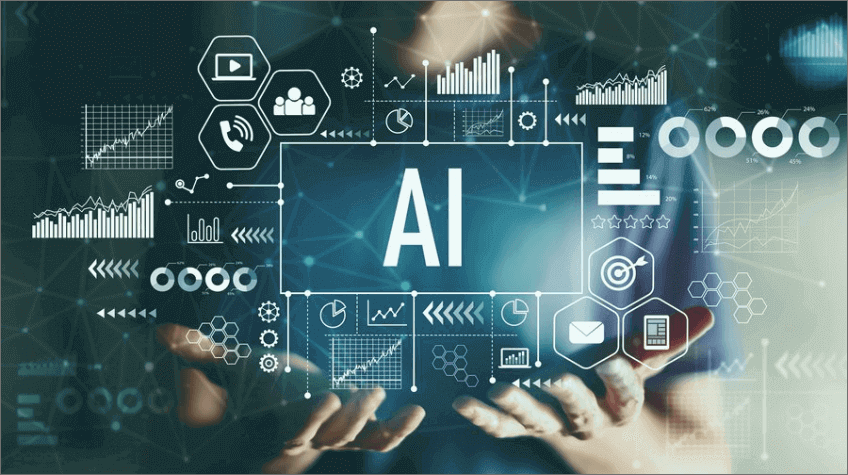The Role of AI in Digital Transformation
Artificial Intelligence (AI) is at the core of modern digital transformation, reshaping industries by enabling smarter, faster, and more efficient business processes. Organizations across sectors are increasingly adopting AI-driven solutions to enhance productivity, automate tasks, and make data-driven decisions with unprecedented accuracy. Companies that fail to embrace AI risk falling behind competitors who leverage automation and predictive analytics to optimize operations. AI plays a crucial role in streamlining workflows, reducing operational costs, and delivering personalized customer experiences. Whether it’s chatbots providing instant support or AI-powered analytics forecasting market trends, the integration of AI into digital transformation is no longer optional—it’s a necessity. Businesses must adapt by integrating AI tools that not only enhance efficiency but also foster innovation and long-term scalability. By embedding AI into their transformation strategies, companies can future-proof their operations and stay ahead in an increasingly digital world.
Core Technologies Driving AI-Powered Transformation
Several core technologies power AI-driven digital transformation, each contributing to enhanced business capabilities. Machine learning is one of the most impactful AI technologies, enabling businesses to analyze vast amounts of data, identify patterns, and generate insights that drive informed decision-making. Natural Language Processing (NLP) allows machines to understand and process human language, making virtual assistants, chatbots, and AI-powered customer service more effective. Computer vision technology is revolutionizing industries such as healthcare and manufacturing by enabling machines to interpret and analyze visual data, leading to advancements in diagnostics, security, and automation. Robotics and AI-driven automation have redefined how businesses operate, with smart robots taking over repetitive tasks in industries like logistics, retail, and healthcare. These technologies work together to create an ecosystem where AI enhances operational efficiency, improves customer interactions, and fosters innovation. Companies integrating these AI technologies into their digital transformation strategies are setting the foundation for a smarter, more connected, and highly efficient future.
Key Benefits of Integrating AI into Digital Transformation Strategies
The advantages of incorporating AI into digital transformation efforts are vast, spanning across multiple business functions. One of the most significant benefits is increased efficiency and productivity through automation. AI-powered systems can handle repetitive, time-consuming tasks, allowing human employees to focus on strategic initiatives. AI-driven analytics improve decision-making by providing accurate predictions, enabling businesses to anticipate market trends and customer needs. Enhancing customer experience is another major benefit, as AI personalizes interactions through intelligent recommendations, chatbots, and real-time support. AI also plays a critical role in strengthening cybersecurity by detecting and preventing potential threats before they escalate. Additionally, AI-powered supply chain optimization improves inventory management, demand forecasting, and delivery logistics, reducing operational costs. Businesses that leverage AI not only streamline operations but also gain a competitive edge by making data-driven decisions and adapting to changing market dynamics with greater agility. Embracing AI as a fundamental component of digital transformation allows organizations to unlock new growth opportunities while optimizing resources and enhancing customer satisfaction.
Challenges Businesses Face in Implementing AI
Despite the immense benefits, integrating AI into digital transformation strategies comes with its own set of challenges. Data privacy and security concerns are at the forefront, as businesses must ensure that customer information is protected while leveraging AI-driven analytics. Another significant hurdle is the integration of AI with existing legacy systems, which may not be designed to support advanced technologies. Many companies also struggle with the shortage of skilled AI professionals, as implementing AI-driven solutions requires expertise in data science, machine learning, and software engineering. Ethical concerns, such as bias in AI algorithms, must also be addressed to ensure fair and transparent decision-making. Additionally, the cost of AI adoption can be a barrier for smaller businesses that may lack the necessary resources for large-scale implementation. Overcoming these challenges requires a well-planned AI strategy, investment in employee training, and a commitment to ethical AI development. Businesses that successfully navigate these obstacles will be better positioned to harness AI’s full potential and drive sustainable growth.
Best Practices for a Successful AI Adoption Strategy
To maximize the benefits of AI in digital transformation, businesses must follow best practices for successful implementation. Establishing clear objectives is essential, as AI initiatives should align with business goals and contribute to measurable improvements in operations and customer experiences. Investing in workforce training is equally important, ensuring employees have the necessary skills to work alongside AI-powered tools effectively. Selecting the right AI tools and platforms is crucial, as businesses must choose solutions that integrate seamlessly with existing systems while offering scalability for future growth. Ethical AI deployment should also be a priority, with companies implementing measures to minimize bias and ensure responsible AI use. Continuous monitoring and optimization of AI models are necessary to improve accuracy and effectiveness over time. Collaboration between business leaders, IT teams, and AI experts will foster a culture of innovation, making AI adoption smoother and more impactful. Companies that adopt a structured approach to AI integration will achieve greater efficiency, improved decision-making, and enhanced competitiveness in the digital era.
AI in Action: Real-World Applications Across Industries
AI-powered digital transformation is making a tangible impact across various industries, revolutionizing traditional business models. In healthcare, AI is being used for predictive analytics, early disease detection, and personalized treatment recommendations, improving patient outcomes. The financial sector benefits from AI-driven fraud detection, algorithmic trading, and automated customer support, enhancing security and efficiency. Retail businesses leverage AI for personalized shopping experiences, inventory optimization, and demand forecasting, leading to increased customer satisfaction and reduced operational costs. In manufacturing, AI-powered robotics streamline production lines, ensuring higher precision and efficiency while minimizing human error. The transportation and logistics industry is optimizing delivery routes using AI, reducing fuel consumption and improving supply chain efficiency. AI applications continue to evolve, enabling businesses to operate smarter, faster, and more efficiently. Organizations that integrate AI into their operations are not only enhancing performance but also redefining industry standards and customer expectations.
The Future of AI in Digital Transformation
The future of AI in digital transformation is filled with possibilities as emerging technologies continue to shape the business landscape. AI-driven advancements in automation, data analytics, and machine learning are expected to drive greater efficiency, enabling businesses to make more informed decisions in real time. The development of more sophisticated AI models will lead to improved accuracy in predictive analytics, allowing companies to anticipate trends with greater precision. AI’s role in sustainability will also expand, as businesses explore AI-driven solutions for reducing carbon footprints, optimizing energy consumption, and improving waste management. Ethical AI and responsible AI governance will become increasingly important, with organizations prioritizing transparency and fairness in AI decision-making. As AI technology evolves, businesses that proactively adopt and integrate these advancements will remain at the forefront of innovation. Those who embrace AI as a core component of their digital transformation strategies will gain a competitive edge, ensuring long-term success in a rapidly evolving digital world.
Frequently Asked Questions
Q1: How can small businesses leverage AI for digital transformation?
Small businesses can start by adopting AI-powered tools for automation, customer engagement, and data analysis. Chatbots, AI-driven marketing platforms, and predictive analytics can help improve efficiency and enhance customer interactions without requiring large investments.
Q2: What are the biggest risks of implementing AI in a company?
Some of the major risks include data security concerns, AI biases in decision-making, high implementation costs, and the potential displacement of human jobs. Companies must ensure ethical AI deployment and invest in workforce training to mitigate these risks.
Q3: How does AI improve customer engagement and retention?
AI enhances customer engagement by personalizing experiences through recommendations, chatbots, and real-time support. Predictive analytics help businesses understand customer behavior and preferences, enabling them to tailor services and improve retention.
Q4: What industries will benefit the most from AI-powered digital transformation?
Industries such as healthcare, finance, retail, manufacturing, and logistics are already experiencing significant benefits from AI-driven digital transformation. Businesses in these sectors leverage AI to optimize operations, enhance customer experiences, and improve decision-making.
Q5: How can companies ensure ethical AI deployment?
Companies should focus on transparency, fairness, and accountability in AI development. Implementing strict data privacy measures, monitoring AI models for biases, and establishing AI governance frameworks will help ensure ethical AI deployment.
Artificial Intelligence continues to be a driving force in digital transformation, revolutionizing industries and redefining business operations. Organizations that strategically integrate AI will not only enhance efficiency but also unlock new opportunities for innovation and long-term success.







